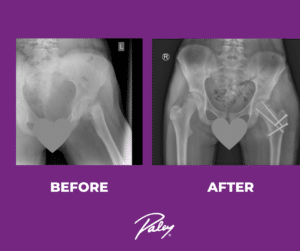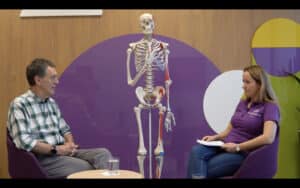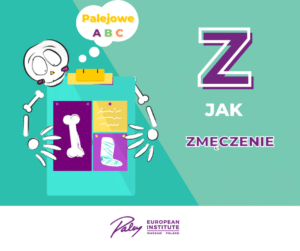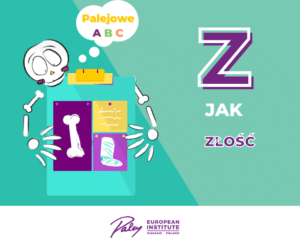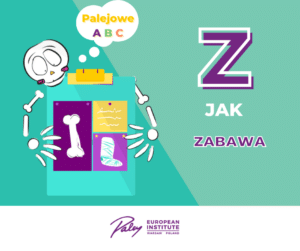Fear of disease, needles, pain or surgery is quite common. It can be caused by unpleasant experiences in the past, but also by imagining how treatment might work. Some children and adolescents tend to perceive future events in black colors. Therefore, it is worth finding out in advance how the procedures or meetings with doctors will be carried out in order to support the child in coping with anxiety.
Although, from the perspective of an adult, what happens to a child is trivial and inconspicuous, it can cause a lot of anxiety and fear in a young person. It is worth bearing in mind that many adults, despite their age, are still afraid of medical interventions or visits to the dentist. Perhaps, if someone had taken care of their fear when they were younger and took their fears seriously, they would not have to face their anxiety while drawing blood or drilling a tooth now.
Anxiety can take many forms. Some children say what is happening to them and what they are feeling, while others show anxiety through behavioral changes such as body tremors, shallow and rapid breathing not talking, or crying. Most importantly, however, anxiety manifests itself as a tightening of the muscles. Do you remember situations where your child hit his leg or arm, or injured himself so that there was blood, but did not even notice it because he was in the middle of a fascinating game? It happened so, among other things, because the child’s attention was focused on the fascinating game, and the child itself felt safe, relaxed and calm. On the other hand, when the child is excited, for example during blood sampling or vaccination, his muscles tense up so much that it intensifies the pain sensation.
Mild or moderate anxiety that disappears as soon as it has started is okay. It gives us information that something important is going on that is worth looking at and taking some action. However, long-term anxiety that does not diminish and takes a very intense form may be disturbing. It may be accompanied by a change in appetite, a constant feeling of tightness in the stomach, a feeling of light-headedness and trouble sleeping. Prolonged severe anxiety may slow down wound healing and prolong the recovery period. When the body cannot relax and unwind, all unpleasant sensations are felt more intensively.
Children report that their greatest concerns are healthcare professionals, separation from their parents and losing their sense of control and security. They are also afraid of pain, death, and an unfavorable outcome of the surgery, which can be a disappointment for them. That’s a lot of concern for a little child. It is difficult to bear such a burden alone, therefore parents and medical staff play an important role in the process of taming fear. It is important to explain to the child what will happen, talk to him about his hopes and concerns about the treatment. Don’t make any promises that everything will be okay, because no one can predict it with certainty. Also, remember to let your child experience emotions, even if they seem inadequate to the situation. In moments of intense emotion, no one wants to hear that they are exaggerating and should calm down immediately. A better strategy is to reassure your child that you are there and that you will find a solution together.
One effective way to reduce the anxiety of surgery is to engage in pleasures such as play. The child has the opportunity not only to have a good time, but also to relieve tension and work through fears.
Research has shown that playing directly before surgery significantly reduces anxiety in a child, and thus improves the well-being of his caregivers. This is an important issue because anxiety appears in their caregivers as often as in childrenIt is completely natural. The stressful and new situation which is treating a child and dealing with his emotions can be very burdensome even for the most enduring person. Lack of control over events, the feeling that nothing is influenced by anything and the fear of the child’s pain, or anxiety about whether the medical team is properly caring for the child are situations that can trigger great anxiety. In addition, it increases immediately before surgery, after surgery – when the child may feel pain, and during times of fundraising for treatment. Caregivers, however, are usually perfectly able to deal with their emotions and feelings in the body. Difficulties may arise when you return home or after the treatment has finished. Then, instead of the desired rest and relaxation, a strong anxiety or even depression may appear. Then, the parent does not have to mobilize all their resources to act, and the chronic fatigue that has been with him for the last time comes to the fore. As a result, the body and mind say STOP. The support group that accompanies the child and their carers throughout the treatment process plays an important role in preventing these conditions.
Premedication, such as the administration of agents that have a calming effect, in order to reduce the anxiety of children and parents before surgery, is the standard. It also reduces the tension associated with the surgery. At the Paley European Institute, we also make sure that animators and a psychologist come to children to entertain the child and make it easier for him to wait for surgery. We also know how important a child’s sense of security is, which is why the parent accompanies the child on the way to the operating theater. During the operation, the caregiver receives information about the course of the procedure, which makes it easier to cope with the expectations and reduces the feeling of helplessness.
At every stage of treatment, our team is at your disposal so that you have all the information you need and are not left alone with your worries. A calm parent is a calm child.
Sources of knowledge and inspiration thanks to which this article was created:
Fortiera,M.A., Kaina Z.N. (2015), Treating Perioperative Anxiety and Pain in Children: A Tailored and Innovative Approach, Paediatric Anaesthesia
Ghabeli F., Moheb N., Nasab S.D. (2014), Effect of Toys and Preoperative Visit on Reducing Children’s Anxiety and their Parents before Surgery and Satisfaction with the Treatment Process, Journal of Caring Sciences
Melettia D.P. et al.(2019), Psychological preparation reduces preoperative anxiety in children. Randomized and double-blind trial, Jornal de Pediatria

